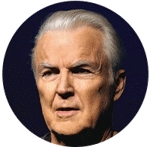
Councillor Hamann, "Matrix Reloaded" by the Wachowskis
“I like to be reminded this city survives because of these machines. These machines keep us alive, while other machines are coming to kill us. Interesting, isn't it? The power to give life, and the power to end it.”
Much of the current public debate concentrates on the discussions around whether humans will lose out to the machines in the labour markets of the future and, most importantly, by how much we are going to lose. The implication of AI for the UK economy and the labour market is also one of the major themes in the recent House of Lords report. The estimates of potential job losses in the US and the UK (among other countries) as a result of automation and robotic innovations range from a pessimistic 47% in the US and 35% in the UK to more optimistic 10% in the US and 12% in the UK. The recent OECD report on “Automation, Skill Use, and Training” approximates that 66 million people across 32 countries are at high risk of job loss. It is expected that automation will mostly affect low-skilled workers and there will be significant heterogeneity in the global impact of AI: the Netherlands, English-speaking and Scandinavian countries are least likely to feel the effects of robotics and automation whereas workers in Germany and Japan are likely to suffer most.
When talking about the future of the labour markets in the new digital economy, sceptics concentrate not only on the job loss risk in absolute terms, but also on other potential negative effects of AI such as (i) technology of the future is likely to destroy more jobs than it will create; (ii) AI will increase inequality and polarisation on labour markets between low skilled and high skilled occupations; (iii) automation will lead to pay decrease for unskilled and even skilled workers, whose tasks could be easily automated etc. Yet, these arguments are not new: through the centuries, the development of human civilisation was closely linked to the development of technology.
This interrelation often catalysed major changes in our ways of life, employment, and education. The latest major changes resulted from the Industrial Revolution of 18th-19thcentury. These changes were so profound that they have continued into the 20th century: in fact, our educational system is still structured to address the challenges sparkled by the technological changes of the 20th century. At the beginning of the 21st century when we see technology reach new heights, we understand that changes to the way we live and work are inevitable. So, why are we so worried about these changes? What is different now?
Behavioural science provides a partial answer to these questions. Could it be that it is not the change that makes us worried and it is not the scale of this change, but rather that AI and robotics affect our perception of control? Illusion of control is one of the strongest human biases – it refers to our tendency to overestimate our ability to control events. There are many machines which we use in our daily lives without understanding how these machines function and operate, but we are not worried about them because we think that these machines are completely controlled by us: we as humans have an ability to decide when to switch them on and shut them down. But this is only an illusion: imagine your life without electricity, hot water, personal computers, smartphones, Wi-Fi, etc. The truth is – we are dependent on machines and technology just as machines and technology are dependent on us. And in this interdependency lies the power of humans to navigate through new challenges with each new wave of the technological change.
What we are worried about and what is different now at the beginning of the 21st century is our amplified illusion of control and our growing concern that machines will take over and gain “control” over us. We are so much influenced by our illusion of control that it affects our judgement of reality. According to several recent surveys, the overwhelming majority of respondents in the US (between 65% and 90%) believe that most jobs will be affected by the automation but only a minor proportion of the American population (9% to 23%) believe that the automation will affect their own jobs. Under these circumstances, it is clear that we need to stop denying the fact that our lives already depend on technology to a significant extent and start embracing this interdependency between the human world and the machine world in order to find ways to co-exist in the changing environment of the global digital economy.
Make no mistake – AI will change your life, your job prospects, as well as the life and job prospects of your children – even if you are working in the most creative and most socially-intense occupation. This change will not be easy – it will require significant investment into restructuring our educational system and the worldwide labour market. Yet, the sooner we acknowledge our dependency on technology and the sooner we start seeing it as an opportunity rather than an obstacle, the more efficient and smooth will be the shift towards the new labour market ecosystem where humans and technology coexist in harmony